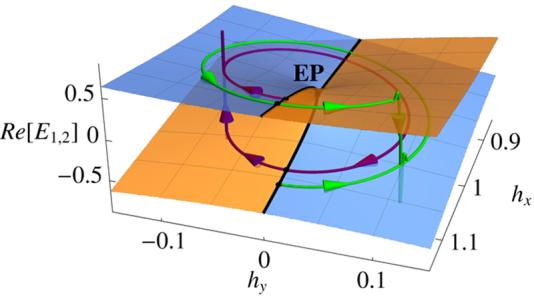
Scientific Achievement
Non-reciprocal topologically-protected time evolution in driven dissipative spin systems is discovered.
Significance and Impact
Our findings enable a high-efficiency spin-filter device based on parametric driving around non-Hermitian spectral degeneracies.
Research Details
- Developed a theory of the non-Hermitian spin dynamics in spin-torque-driven dissipative spin systems.
- Predicted non-reciprocal time evolution by encircling an exceptional point in configuration space.
- Determined optimal protocol parameters for a high-efficiency asymmetric spin-filter effect.
DOI: doi.org/10.1038/s41598-019-53455-0
Argonne National Laboratory seeks solutions to pressing national problems in science and technology. The nation’s first national laboratory, Argonne conducts leading-edge basic and applied scientific research in virtually every scientific discipline. Argonne researchers work closely with researchers from hundreds of companies, universities, and federal, state and municipal agencies to help them solve their specific problems, advance America’s scientific leadership and prepare the nation for a better future. With employees from more than 60 nations, Argonne is managed by UChicago Argonne, LLC for the U.S. Department of Energy’s Office of Science.
The U.S. Department of Energy’s Office of Science is the single largest supporter of basic research in the physical sciences in the United States and is working to address some of the most pressing challenges of our time. For more information, visit https://energy.gov/science.